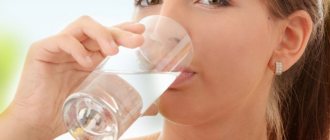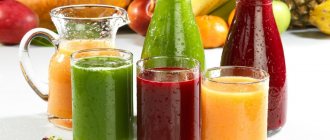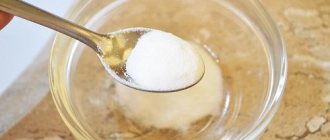Without water there is no life. You may even realize it now, but water is actually much more important to your body than food. Typically, you can only survive without water for three to four days, while without food you can potentially live for about three weeks.
Despite this, many people still suffer from chronic dehydration because we often don't drink enough during the day. If you do your best to make sure your body gets enough fluids (and nutrients), it can give you a lot more in return.
Keep reading to learn about the benefits of drinking water, as well as what happens to water when you drink it: where it goes, how your body deals with it to maintain vital functions, how long it takes for water to be digested and etc.
Why is drinking water important?
As mentioned above, you cannot survive without water. It literally supports all of your vital functions and ensures that you can think clearly and function normally.
There are also some more specific benefits of drinking water related to the digestion process, as water plays an important role in this as well.
So what role does water play in healthy digestion?
Creation of saliva
Water is the main component of saliva. Digestion begins in the mouth when saliva begins to break down food, so water plays an important role in the first stage of this process.
Getting rid of toxins.
Water is key to sweating, urination and normal bowel movements, which help your body eliminate various types of waste.
Sweat helps your body regulate its temperature and can lead to dehydration if you don't replenish lost fluids.
Enough water is also necessary to pass stool, otherwise you may experience constipation. Another organ involved in waste disposal is the kidneys, which filter it before urination. If your body is low on water, your kidneys cannot function properly and kidney stones may begin to form.
Prevention of constipation.
As mentioned above, not drinking enough water can cause constipation, which can lead to adverse effects. When you are dehydrated, your intestines cannot add water to your stool and must get it directly from the food you consume. This leads to slow digestion, that is, difficult, dry and hard stools.
Accelerating the speed of food passage.
Wait, does drinking water speed up digestion? Many people believe that drinking water during meals can cause digestive problems. However, drinking water before, during, and even after meals can help your body digest the food you eat faster and more easily.
Improved nutrient absorption.
Drinking water before, during or after meals helps break down food. This way, your body can more easily absorb the nutrients in your food.
Additionally, water helps dissolve vitamins, minerals and other beneficial nutrients found in food and deliver them to various organs in your body.
How much water should you drink?
Many people have trouble drinking enough water because they simply forget to do so. Your body's natural reaction to this neglect is called thirst. But when your body tries to get your attention and get you to finally drink that glass of water, it is already dehydrated.
You've probably heard of the "8 glasses of water a day rule," but is that really the optimal amount for you?
Ideally, men should drink about 3 liters of water and women should drink about 2 liters exclusively from drinks. If you live in a hotter environment or have an active lifestyle, this amount should be increased to prevent dehydration.
If you're not sure if you're drinking enough, pay attention to your body, which gives you signs when you feel thirsty. Also, check the color of your urine, as darker urine indicates a lack of water. The reason for this is that when you become dehydrated, your kidneys tell your body to retain water. This causes the urine to contain less water, so it is not diluted and appears darker.
Make sure you drink enough water by keeping glasses or bottles of water at home or setting an alarm on your phone. If you do this long enough, drinking water will become your new habit and you won't even have to think about it anymore. Your body will be immensely grateful!
Drinking tap water or mineral water?
Drinking tap water instead of sugary sodas is a great idea for your health, but we have an even better option - drinking Donat Mg! Why? Because it's water infused with vital minerals like magnesium, which will give your digestion a well-deserved boost and improve your well-being. And these are not empty words. Donat is a clinically proven remedy for slow digestion, the effect of which was confirmed by a German study.
The truth is in water: how much should you drink? Dietitian answers
08/14/219 Magazine “Beauty and Health”
Water is good for the body - this is an axiom for everyone.
Natalya Pugacheva, a nutritionist at the Health Management Clinic of Sechenov University,
talks about what kind of water, when and how much to drink in the Beauty and Health The truth is in water: how much should you drink? Dietitian answers
It is an axiom that water is beneficial to the body. But is it really important to drink it all the time? And if so, how many in liters and what kind? We asked the main questions on the hottest topic of the summer to an expert who knows everything about water.
Natalya Pugacheva, nutritionist, Health Management Clinic, Sechenov University
Is the widespread recommendation to drink 2 liters of water a day a brilliantly planned advertising campaign for water consumption or concern for health?
If it's a concern, then why 2 liters? We are more than two-thirds made of water; it is obvious that without water life ceases. It is water that is both a transport vehicle, a structure-forming component, and the main medium in which complex biochemical processes occur. Another question is how much water to drink? There is no clear answer. The amount of water a person needs is very individual. One “size” does not fit all, if we talk about the notorious 2 liters. Of course, it is important not to forget to drink water throughout the day, but there is no need to limit the amount to 2, 3, 4 liters (according to various recommendations). The optimal norm, which has already been confirmed by experts, is at least 1.2–1.5 liters for an adult under any conditions. We are talking about the “average” case - without serious illnesses, taking diuretics, etc. Hot weather, serious training loads, physical labor, fever increase the need for water (due to additional losses through sweat), taking some medications also requires increased drinking water. Children's water - how is it different and at what age can you switch to adult water?
Water for children (according to state standards) has lower mineralization compared to adults.
And bottled water must be labeled as children's water. From 12 years of age and older, the water requirements for children are the same as for adults. Water for children, of course, should not contain microorganisms and toxic chemical impurities. Water standards for children are calculated by age, taking into account the type of feeding (for infants), as well as the degree of physical activity and weather conditions. There are special tables for calculations that are easy to use without the help of a doctor. Is it true that chlorinated tap water and boiled water are useless for the body?
Tap water undergoes several types of purification: from mechanical and mineral impurities and disinfection (from microbes).
In our country, water is often chlorinated, and this is a fairly effective method of purification. But the water then reaches the kitchen faucet through a system of pipes whose quality is difficult to predict. Therefore, it is not advisable to drink water directly from the tap in a big city. Residual chlorine from tap water disappears upon settling; bound chlorine is usually determined in trace amounts (not exceeding permissible limits). When boiling, of course, the vast majority of bacteria die, but after 15–20 minutes of treatment. In this case, some of the salts precipitate, and the oxygen dissolved in the water evaporates, depleting the composition of the water. So drinking tap water (in most cases!) and boiling it for long periods of time makes the water either unsafe or devoid of beneficial components. But this applies to a long-term, constant similar approach. What is better - buying water at the store or filtering it?
This question can be answered in different ways, and each answer will be fair.
In the first case (bottled water), you read the label carefully and understand that the water suits you in composition - the degree of general mineralization, the amount of specific microelements, pH, etc. And the second point - you trust the manufacturer that what is written is true. About the advantages. Bottled water often comes from artesian springs, it goes through a shorter purification cycle, it retains the richness of natural water, even microbiological purification is often carried out by ozonation rather than chlorination. About the cons. Regular use of plastic containers significantly increases your costs. Now let's consider the option of filtering water. The quality of water largely depends on the type of filter. Stationary models with a powerful cleaning function protect against bacteriological contamination and do not have a negative effect on beneficial microelements. Mobile smart filters and those with replaceable modules will not provide high quality water. If you do not change the cartridge in a timely manner (and this happens very often!) the harm from such a filter will be more than good. Water from springs, artesian wells - how safe is it?
After all, as a rule, no one checks the quality of water in these sources. If artesian water (from deep 100–1000 m) from aquifers is bottled, it has undergone several stages of purification from mechanical (sand) and mineral (excess, in particular, iron) impurities and microbiological purification (the ozonation method is more often used).
In this case, the water becomes absolutely safe. If you personally managed to get to artesian water on your site and even received all the necessary permits and paid a considerable amount for it, we recommend that you have your water analyzed. The analysis will be done in the laboratory for quite reasonable money. If you drink low quality water all the time, what could be the consequences for your body?
Distilled (or very soft) water, when consumed for a long time, causes a deficiency of microelements.
This applies to calcium, magnesium, iron, fluorine. A person receives 20–30% of many microelements from water, so when its composition is depleted, deficiency develops quite quickly. If the water is excessively mineralized (hard), complications may arise in the form of deposition of salts of various microelements (fluorine, iron, calcium, chromium) in the internal organs, on the teeth, in the form of stones (in the kidneys, for example), disrupting the function of organs and tissues. Some microelements, when supplied in excess (above acceptable safe standards) quantities, sometimes five or even a hundred times higher than the permissible concentration, can have independent mutagenic and oncogenic activity. Is it right to start the morning with a glass of clean water?
This is a good habit!
15–20 minutes before breakfast, water, entering the upper parts of the gastrointestinal tract, prepares it for the arrival of food, reflexively (especially if you drink a glass of water at the same time) stimulating the secretion of gastric juice, pancreatic secretions and bile. This ensures both appetite during breakfast and more complete, healthy absorption of food. The arguments that drinking water in the morning cleanses the body of toxins, starts metabolism, and promotes weight loss have not been scientifically confirmed. The norm of two or three glasses in the morning is also not suitable for everyone and has no scientific basis. Mineralized water: if you drink it without the advice of a nutritionist, what consequences may occur?
Mineral water is natural water from a source where deep artesian waters come to the surface of the earth with a specific chemical composition.
It differs from the usual by significant mineralization and sometimes by pH deviations from the neutral value. You need to drink this water as prescribed by your doctor, as it has a healing effect for various diseases and conditions and has its own rules for taking it. Most often it is prescribed for a short course. There is a distinction between mineral table water, the degree of its mineralization (ash content) is lower than medicinal, but higher than that of ordinary drinking water. Its composition is unbalanced; there may be a deficiency of some microelements and an excess of other microelements. Can be consumed without a doctor's prescription, but in limited quantities (one or two glasses per day), the rest is plain water. When drinking mineral water regularly (instead of any other), the same complications are possible as when drinking hard water. Water from plastic bottles - when does it become dangerous?
Storing water in plastic bottles has its advantages (including environmental ones).
The unconditional health hazard of compounds such as bisphenol A, phthalates, chlorine, dioxins and others has not yet been proven. And safety also depends heavily on correct use. That is, you should not heat plastic dishes (and bottles), store liquids that are not intended for them (for example, pour fruit juice or alcohol into a milk bottle), or reuse this bottle after drinking water. The quality of water depends on the period and storage conditions. It is correct to store water in a cool place, away from direct sunlight, otherwise there is a high risk of bacterial growth. How to properly drink water in the morning, before meals and during fitness?
In the morning it is useful to drink a glass of water at room temperature, perhaps with a slice of lemon. Before lunch and dinner, you can drink a glass of still water half an hour before meals. It is better to drink water evenly throughout the day, without leaving the lion's share of the daily norm for the evening, just drink a little every 40-60 minutes, without waiting until you feel thirsty. Should you drink water during fitness classes and workouts - most likely yes, for everyone. But the number of drinks and their composition is selected individually, depending on the intensity of the workout.
Link to publication: kiz.ru
How do we digest water?
Now that we've discussed all the benefits associated with your digestive system, let's talk about how you digest water, or more accurately, how you absorb it. You are probably wondering where water is absorbed in the digestive system and which organ in the digestive system absorbs water. There are many questions, let's get to them.
To clarify, unlike digesting food, water is actually absorbed into your body, so it takes less time for your body to deal with it when consumed. So we're not really talking about water digestion here, but rather water absorption.
Water is a wonderful liquid because it can get into your body so quickly. Its path begins in the mouth, from where it passes through the esophagus to the stomach. This is when water absorption begins and the water is absorbed into your bloodstream.
How much water is absorbed in the stomach depends on how much you eat.
If you drink water on an empty stomach, the water may be absorbed in less than 5 minutes after drinking it. On the other hand, if you ate a lot before drinking, it may take a couple of hours for the water to be absorbed.
When the process in the stomach is completed, water from the stomach enters the small intestine, where the water is absorbed into the cell membranes and bloodstream. This way, water will hydrate your body cells so that they can perform their daily tasks without any problems.
The water then moves to the colon where it is reabsorbed. The remaining water and other nutrients are absorbed and then used to form stool. If you drink a lot of water, it will be enough to moisten the stool and make it easier to pass. If you are dehydrated, your stool will be dry, making it more difficult to pass.
Does it matter when you drink your water?
As mentioned above, certain conditions can promote water absorption.
First , drinking water on an empty stomach is the most effective way to quickly hydrate your body, as it will enter your bloodstream within 5 minutes.
If the water you drink is cool, the process will go even faster.
Secondly , if you drink water with a meal, it may take your body more than 45 minutes for it to reach your intestines because your stomach will be busy digesting the food.
Thirdly , if you remember to drink a glass of water only after eating, it may take 2 or more hours for it to be absorbed. This happens because your body will prioritize the process of digesting food, and the water will have to wait its turn.
Use this information to your advantage to determine the best time to drink water, depending on how quickly you need it in your system.
Warm or cold?
It is believed that it is most beneficial to drink water at room temperature or heated. This water is better absorbed and cleanses the body. Hot water is useful in the morning on an empty stomach; it can “wake up” the body, free it from toxins and speed up metabolism.
In turn, cold water is absorbed worse. It lingers in the stomach until it warms up and therefore cannot effectively fulfill its main mission - hydration. Additionally, drinking cold water on an empty stomach can stress the body, which can cause weakness and even decreased immunity.
How to find out your water norm, read this article: https://stolichki.ru/stati/arifmetika-zdorovya-skolko-vodyi-pit-v-den/
You can purchase high-quality bottled water at Stolichki Pharmacies.
How can your body absorb more water?
It is extremely important to make sure that your body is able to absorb as much water as possible. If you don't get enough fluids, your body won't be able to function at its maximum level, which can lead to various health problems. So how can you make sure your body is getting enough water?
The first way to improve water absorption is to pay attention to the salt level in your body, especially if you enjoy an active lifestyle and sweat a lot. The reason for this is that when we sweat, we lose a significant amount of water through salt in our sweat, which needs to be replaced.
Salt in your body is important because it helps your cells retain water and absorb nutrients from your intestines. If your body can't provide enough salt, your cells can't hold enough water and become dehydrated. However, keep in mind that too much salt is also a no-no, so don't overdo it.
Another way to make sure you have enough water in your body is to eat foods high in fiber. Fiber, like salt, helps the body retain water in the intestines instead of quickly passing it through. This slow process allows your body to use as much water as possible before allowing it to leave your body.
Causes and risk factors
All standards are calculated for standard living conditions. However, sometimes even more fluid is needed to prevent dehydration. This primarily applies to people who sweat a lot. And it doesn’t matter what caused it: hot weather, intense training or hormonal imbalances.
You should drink significantly more:
- pregnant women;
- nursing;
- athletes;
- after poisoning accompanied by diarrhea or vomiting;
- after heatstroke;
- during periods of frequent urination.
It is recommended to drink more while on a diet. A person who is losing weight does not receive nutrients in the usual amount. You can’t limit yourself to fluids to avoid metabolic disorders.
Dehydration often accompanies certain diseases. With diarrhea caused by intestinal infections, a large amount of fluid is lost, but alkaline ions are excreted along with it, so acidification of the body, or acidosis, develops. In children, this type of pathology develops rapidly and leads to severe disturbances in the functioning of internal organs. Salmonellosis, cholera and other forms of gastroenteritis can lead to dehydration.
If the disease is accompanied by vomiting, the body loses acid. Therefore, the blood reaction shifts to the alkaline side, which also adversely affects the general condition.
Burns to the surface of the body lead to severe forms of dehydration. In young children, even a 1st degree burn, when hyperemia of an area of the body occurs, may already be accompanied by loss of fluid. With more severe burns, when a bubble with interstitial fluid appears at the site of injury, the body loses a significant amount of blood plasma. A severe form of dehydration develops, which without treatment is fatal.
Loss of fluid is observed in diabetes mellitus, diabetes insipidus, and Addison's disease. Therefore, if left untreated, these pathologies can lead to severe dehydration. The risk increases in older people.
Dehydration can result from uncontrolled use of diuretics. They are prescribed to patients with hypertension, but some women use diuretics to reduce body weight. With constant use of pills, the body loses a lot of fluid and electrolytes, and severe disturbances in the functioning of the heart appear.
Healthy fluid intake habits
There are definitely good and bad water consumption habits. If you do not adhere to the following habits, your body is certainly not in serious danger. However, incorporating some healthy hydration habits into your daily routine will help your body absorb water in a healthier way.
Do not hurry
If you want to properly hydrate your body, it's important not to do everything at once. Instead of drinking a lot of water at once, try sipping it slowly throughout the day. Your intestines can't process and absorb a limitless amount of water, so drinking a lot at one time will cause you to waste water.
Add lemon
Water is already wonderful on its own, but adding lemon juice to it will make it extra special. Adding lemon to water has various benefits - it improves the digestive system and contains nutrients such as vitamin C.
If you want to develop a new healthy habit, try drinking a glass of warm water with lemon first thing in the morning. This will not only speed up digestion, but also help you lose weight, improve skin condition, prevent the formation of kidney stones, etc.
Right time
As mentioned, water can take up to 2 hours or more to be absorbed if you drink it after a meal. So it's all about the right timing: if you plan to exercise, start drinking at least 2 hours before. This way, your body can maintain proper hydration levels.
It's a great idea to drink a glass of water as soon as you wake up, since your body probably didn't get any water while you were asleep. So instead of scrolling through social media in the morning, grab a glass of water.
Buy a water bottle
If you always carry a water bottle with you, especially when you leave the house, you will be inclined to take a few sips from time to time. Thus, water consumption is bound to increase.
If you continue to feel like you still can't regularly remember to drink some water, there are plenty of apps you can use as a reminder.
Switch to mineral water.
If you really don't like the taste of water, and even adding lemon juice doesn't help because you're used to carbonated drinks, switch to mineral water.
This way, your body will not only get the much-needed water, but mineral water has many other benefits. Natural mineral water can help you with weight loss, digestive problems and improve your overall quality of life.











